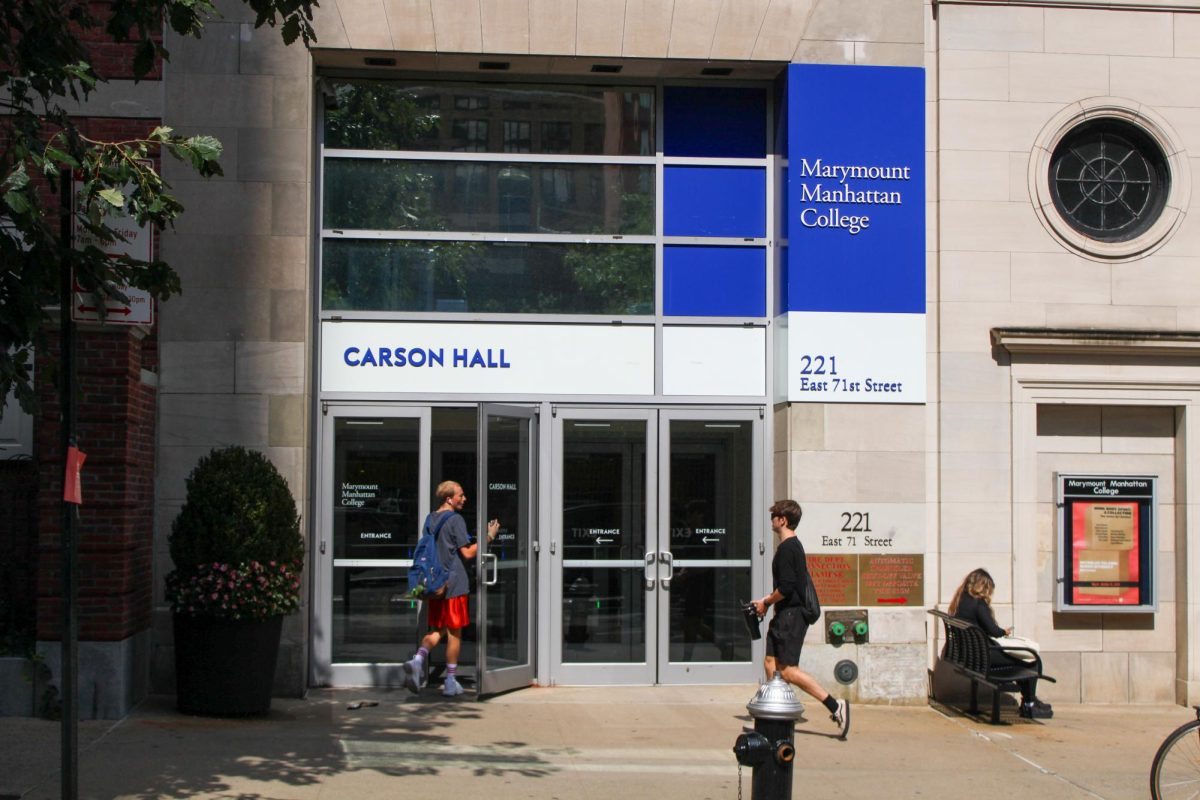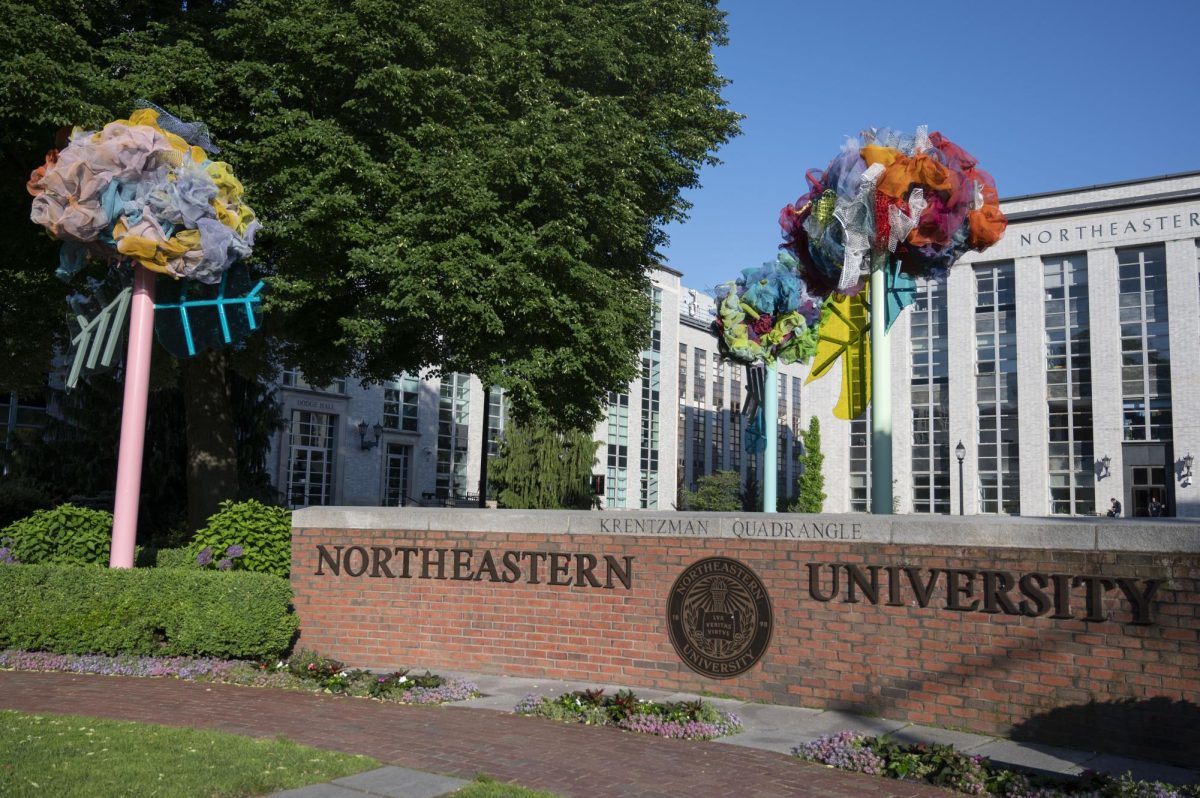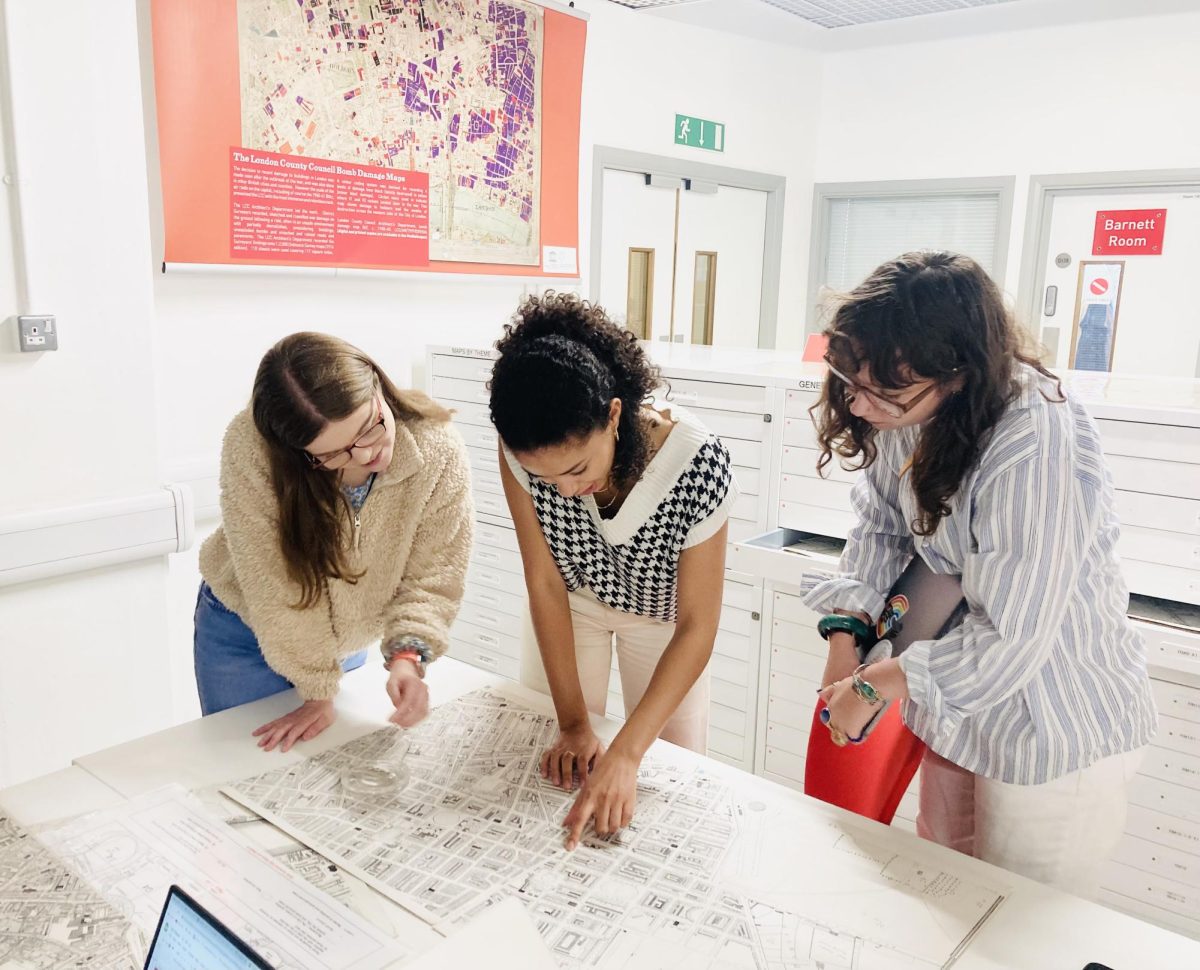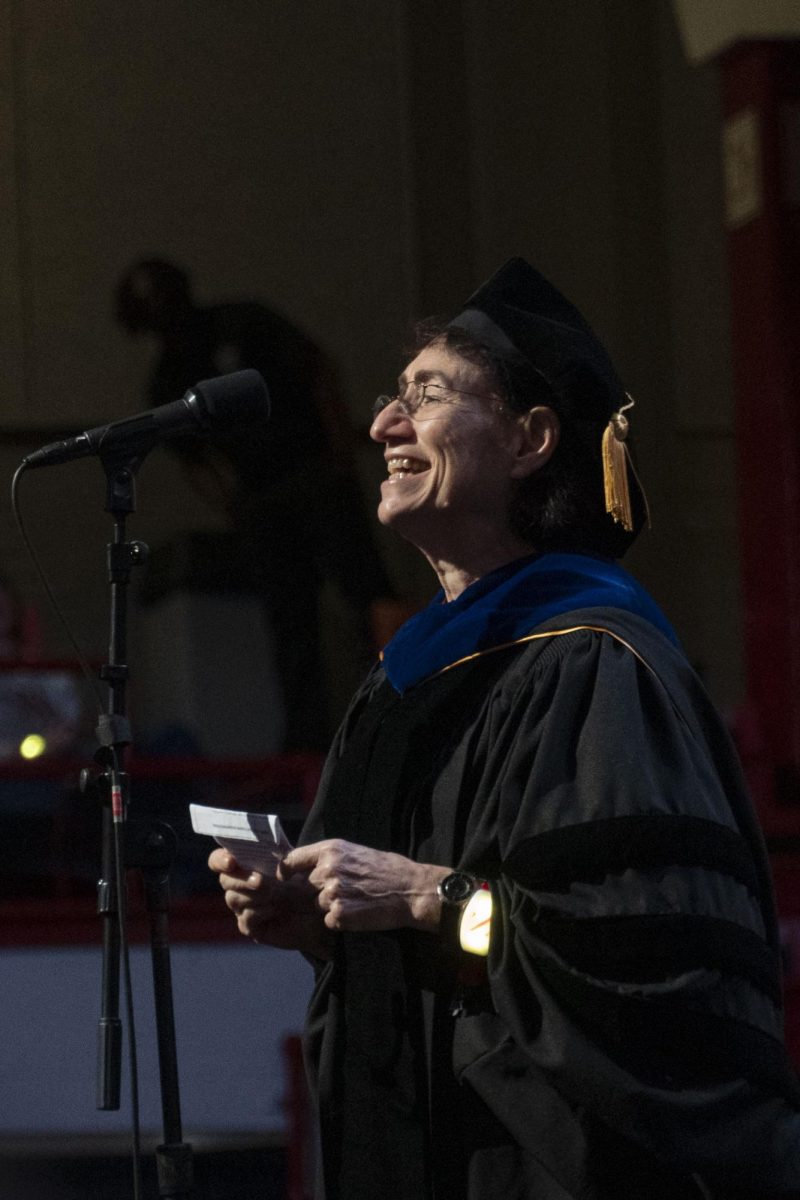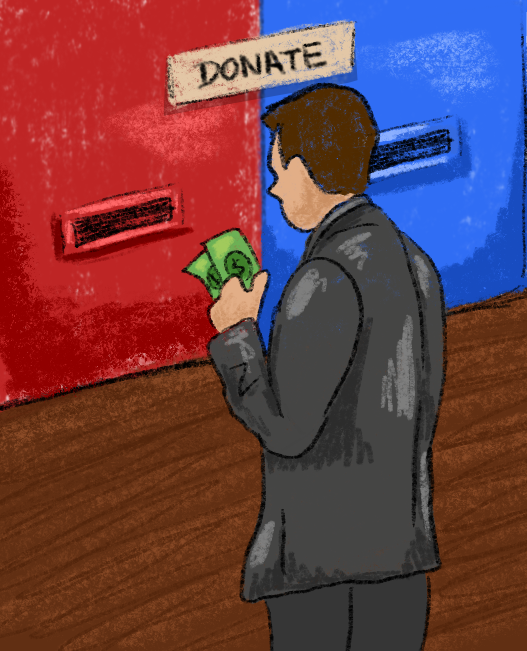By Maxim Tamarov, News Staff

Northeastern’s scientific milieu gathered in the Cabot Center on Thursday for the annual Research Innovation and Scholarship Expo (RISE). Hundreds of posters permeating the arena showcased the research projects of students, representing a wide range of disciplines and striving to offer practical, original solutions to realistic problems in their respective industries.
Four hours of presentations and judging ceremonies were followed by a two hour catered reception in the Raytheon Amphitheater. Presenters enjoyed hors d’oeuvres and wine and beer while listening to pep talks from the administration. Select groups were awarded medals for outstanding research, as well as three cash prizes for RISE awards. The winners were welcomed to the podium to shake hands and take photos with President Joseph E. Aoun.
“This is Northeastern at its best,” Aoun said in an interview after the awards. “We have research. We have innovation. We have scholarship. It’s magnificent.”
The student projects were judged out of a total of 100 points. The judges’ panel consisted of Northeastern alumni and a record 90 outside judges, who were invited to participate in the event.
“The scale was 0-25,” Rob Knochenhauer, one of the judges, said. “There were four elements evaluated: originality, perceived usefulness, practicality and presentation.”
A prize of $1,000 was awarded to those showing excellence in each of the categories: research, innovation and scholarship, according to the RISE website. The award for entrepreneurship was $5,000 and the award for best video pitch was $500.
Carlo Sartori, a senior mechanical engineering student, was a member of the team that won the $5,000 entrepreneurship award. The group, whose project was entitled “Interactive Cyclists Accident Prevention System (iCAPS)” included Amir Farjadian, Qingchao Kong, Matt Gowie, Elica Farjadian and Constantinos Mavroidis. All but Sartori are graduate students.
“We want to help to prevent accidents for bikes,” Sartori said. The project arose when Sartori and his classmates were working on their capstone project last December.
“We won two awards: Biggest Impact and the Provost Award,” Sartori said. “We decided to keep working on this.”

Their group was not alone in hoping to continue their projects beyond the convention. Chris Li, a junior architecture major, found the event helpful in building connections with other disciplines.
“It’s interesting to be able to talk to product-minded people,” Li said about the RISE conference. “That makes me start to think, ‘How can I bring this to market? Rather than theory, how can we execute?’”
A fellow architecture student at the event, Carl Damar, agreed.
“Our major is pretty insular,” he said. “We’re stuck in studio all the time, so we don’t get to see the other work going on around campus.”
Sartori and his co-designers plan to invest the $5,000 they were awarded into furthering their project.
“We started getting into the market,” Sartori said. “We have been talking to the city council and we began talking to City Hub [and other bike companies].” They looked into selling their idea to other enterprises as well.
One of the research leaders was Carey M. Rappaport, professor of electrical and computer engineering.
“The major effort I’m involved in is homeland security and making better security scanners,” Rappaport, who was overseeing six teams at the event, said. “The specific goal we’re trying to [accomplish] is an image so good you don’t need any human interaction at all.”
Rappaport went on to describe a group that worked under his supervision. “One of the six was a robot-base landmine detection. The radar antenna is on the foot. It touches the ground, but not with enough force to set the mine off. We use a ground-penetrating signal … anything that’s not ground sends back a signal. We have the first system that actually has the antenna touching the ground. The robot’s not very expensive — even if it does set off the bomb — certainly better than a farmer’s daughter in Cambodia.”
Knochenhauer, who criticized RISE for its lack of objective judging process, admitted that he had given no perfect scores to any of the teams he evaluated.
“Some of the presenters were close — gave very solid pitches,” he said, pointing out that there seemed to not be enough preparatory classes for the students to learn how to present their projects.
Along with Knochenhauer, Bret Siarkowski, CEO of Biofficient and Northeastern alumnus, said that the event should have lasted longer.
“There are a lot of opportunities from networking,” Siarkowski said as he introduced the event’s award ceremony. “Life is a pitch. You’re either pitching here to get an award, or pitching to get a grant … This event should last more than a few hours, it should last a week. There’s so much to learn.”



